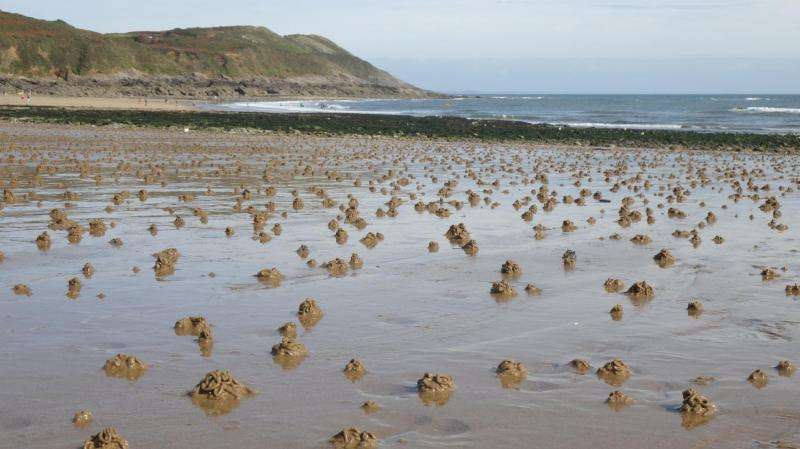Help scientists research lugworms' sex lives

Love is in the air along our coastlines this autumn and scientists from the University of Portsmouth are asking the public to keep an eye out for signs of passion in the lugworm population.
The lugworm – Arenicola marina – is a vital source of food for wader birds and fish, and the species plays an important role in fisheries as a source of bait.
But spending their lives burrowed deep in the sediment, opportunities to find the perfect mate are limited. Instead, the males release sperm which collects in 'puddles' on the surface of the sand. When the tide comes in, the sperm is washed down into the burrows of the females and fertilises their eggs.
Very specific environmental conditions are needed to trigger the release of the sperm and the egg at the same time and very little is known about the process.
Now scientists are calling on members of the public to join the project as 'citizen scientists' and help to fill in the knowledge gaps.
Dubbed Spermwatch, the project is part of a wider conservation project called Capturing our Coast, a partnership between the universities of Portsmouth, Newcastle, Bangor and Hull, the Marine Conservation Society, the Earthwatch Institute, the Marine Biological Association and the Scottish Association of Marine Science. Capturing our Coast is a three-year programme funded by the Heritage Lottery Fund.
Dr Katrin Bohn, Capturing Our Coast Project Officer at the Institute of Marine Sciences, University of Portsmouth, said: "Lugworms are fascinating. The entire population at a specific location reproduces for just a few days every year and only when certain environmental conditions are ideal.
"We want to know what those conditions are and also understand how climate change, for example, will affect that. By going out for a walk on any beach across the UK, members of the public can help us in answering those questions."
Dr Gordon Watson, Principal Lecturer at the Institute of Marine Sciences, said: "This is a great way for people to get involved in scientific research. It would be virtually impossible to collect these data without public involvement, so every bit of data the public collects is vital."
Megan Evans of the Earthwatch Institute said: "Projects such as Capturing our Coast are important, because responsibility for the marine environment belongs to us all, and everyone should have an opportunity to contribute."
More information: Instruction books can be downloaded from the Capturing Our Coast website: www.capturingourcoast.co.uk/spermwatch
Provided by University of Portsmouth




















